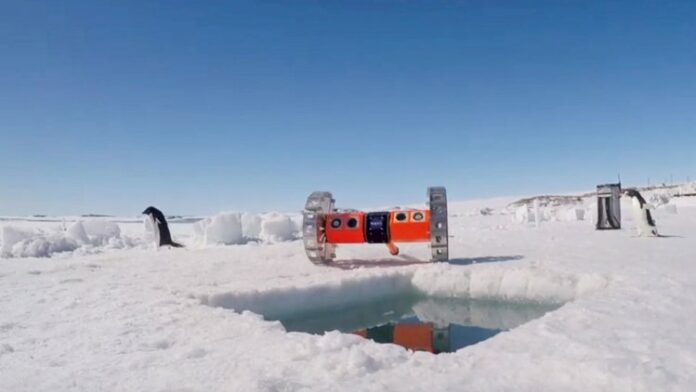A robot designed to search for signs of alien life in our solar system has excelled in its first road-test in Antarctica.
A team from NASA spent three weeks at Australia’s Casey research station, testing the robot under the Antarctic sea-ice.
The buoyant robot ‘floats’ against the underside of the sea-ice to move around on two wheels.
NASA scientist from the Jet Propulsion Laboratory, Dr Kevin Hand, said the Antarctic mission was a huge success:
“We put the robot under the sea-ice on 4 occasions and were able to test its full mechanical capabilities. We even left it hanging out under the ice for a 48-hour sleep-over. What we saw was just stunning, the sea-ice algae dangling down like little chandeliers, carpets of thick algae communities and gas bubbles under the ice.”
The robot has two independent wheels to manoeuvre along the under-side of the ice and suite of science instruments to take samples of the ice-water interface.
NASA Lead Engineer, Dr Andy Klesh, said the robot was able to collect a range of valuable data. He said:
“The under-side of the ice was quite flat, so the robot could roam about amassing information on dissolved oxygen, conductivity, temperature and depth.”
The Antarctic road-tests will now inform changes to the design of the robot.
Dr Hand said:
“We learned from navigating some of the cracks that an additional wheel, like a tricycle, might be useful as well as adding thrusters to it, so we could vary our buoyancy when needed.”
It’s hoped a future version of this robot will be on the mission to explore the salty oceans of Europa and potentially find life beneath its 10 kilometre-thick icy crust.



